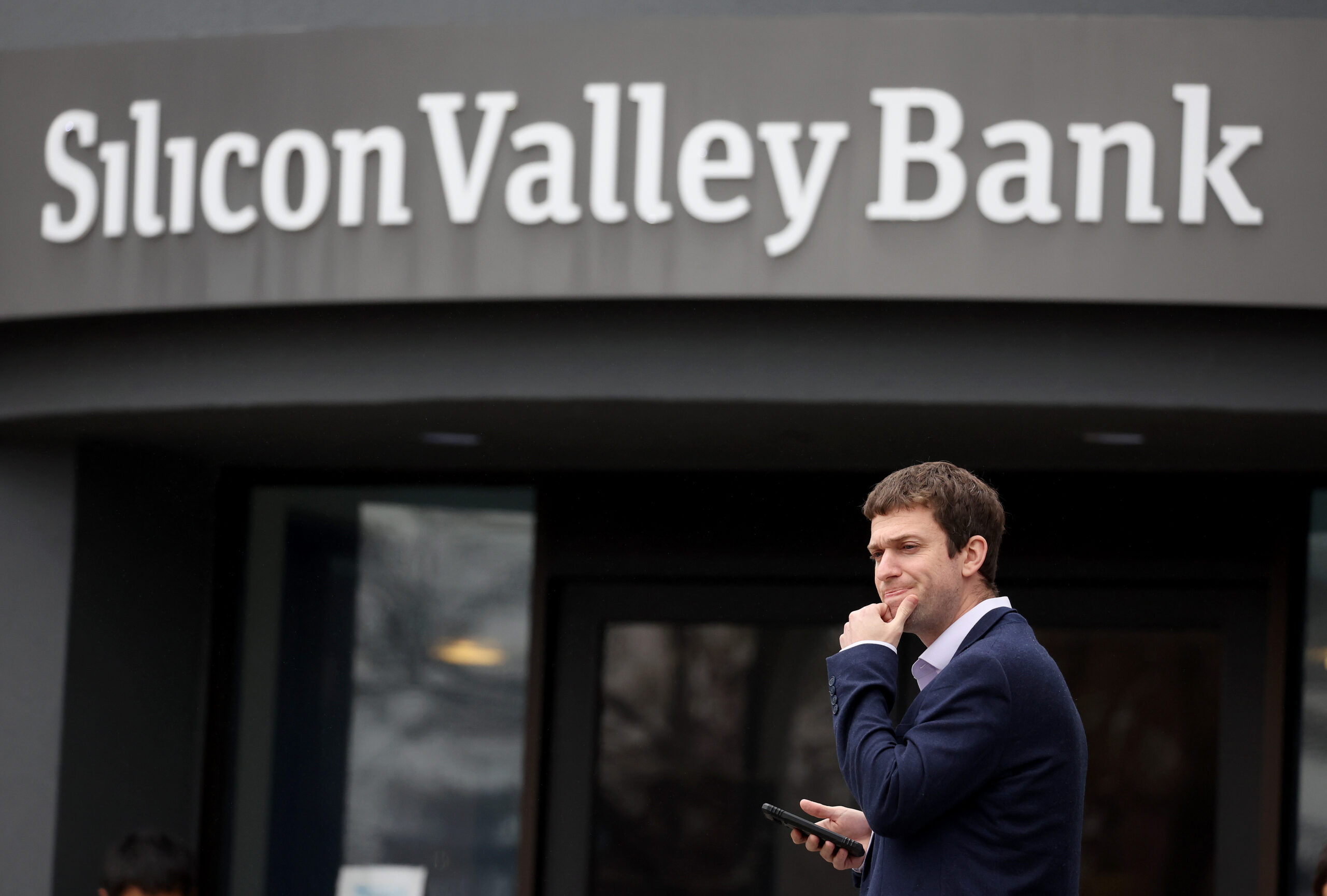It appears that the same people under fire for fueling the bank run that led to the stunning collapse of Silicon Valley Bank (SVB) are playing both sides of the fence, in public and in private.
After urging their portfolio companies to pull their cash out of the bank, many venture capitalists are now clamoring for government support to keep SVB alive.
As of publishing, over 600 venture capital leaders have signed an open letter urging their community to resume banking relationships with SVB should it be “purchased and appropriately capitalized.”
“The same VCs that are asking me to sign a letter saying, ‘I will bank with SVB if the government was to support it’ are the same ones that told me and their other portfolio companies to pull the plug,” said an anonymous startup founder in a blog post on the tech site Sifted. “This was a debacle of our own making.”
Across social media platforms, founders and C-suite executives alike have also been pointing the finger at spooked VCs.
“The panic among investors and startups is to blame,” wrote Konstantin Bayandin, a founder and CEO, in a viral post.
“Founders and CFOs didn’t have a choice,” said a CFO of a major company who spoke to The Standard on the condition of anonymity. “This hurts big time because SVB was the only bank that provides startups the liquidity they need. Big banks won’t do it.”
Notably, two of the biggest firms in the industry—Peter Thiel’s Founders Fund and Andreessen Horowitz—have not signed the letter in support of SVB.
SVB’s problems can be traced to a massive influx of deposits at the beginning of the pandemic, spurred by a tech boom, which was then redirected toward long-term government bonds.
READ MORE: Watch: Silicon Valley Bank CEO’s Last Message to More Than 8,000 Employees at the Failed Bank
When the Federal Reserve raised interest rates to combat inflation, the value of those investments plummeted, and that combined with deposits suddenly slowing down sank the stock value of the bank.
Then, customers and partners went jittery. SVB went bust on Friday after customers reportedly initiated $42 billion worth of withdrawals—requests that it could not honor until U.S. regulators stepped in and seized the bank.
On Sunday, the U.S. Treasury and Federal Reserve announced that the Federal Deposit Insurance Corporation would provide emergency funding to protect SVB’s depositors, even if the bank’s shareholders would be wiped out in the process.
Varun Badhwar, who is the founder and CEO of Endor Labs, which banked with SVB, detailed the dilemma he faced to the Wall Street Journal. Minutes before the wire transfer cut-off last week, he moved a quarter of his company’s deposits to First Republic Bank, a regional bank that appears to be in trouble.
“My first inclination was that this sounds like an overreaction,” Badhwar said of SVB’s plummeting value.
He said he felt torn initiating a transfer from the bank that helped him start two other companies but was pressured to do so, since having access to that amount of money would allow him to meet payroll obligations for the next six to eight months.
Badhwar could not be immediately reached for comment since the FDIC takeover.
On Saturday, the FDIC sent a note to employees offering them 45 days of work for a new entity called the Deposit Insurance National Bank of Santa Clara to protect depositors. The employees will get a pay bump to help in the transition as Silicon Valley Banks sells off assets.
A shareholder of the bank has also just filed a federal lawsuit alleging that SVB was negligent in its management and oversight.
Meanwhile, a person who leads an agency specializing in advising startups said their founders are not paying vendors as a result of the fallout.
“Even companies that didn’t get hung up on SVB are using it as an excuse not to pay,” they said. “That’s the advice they’re getting from VCs.”
